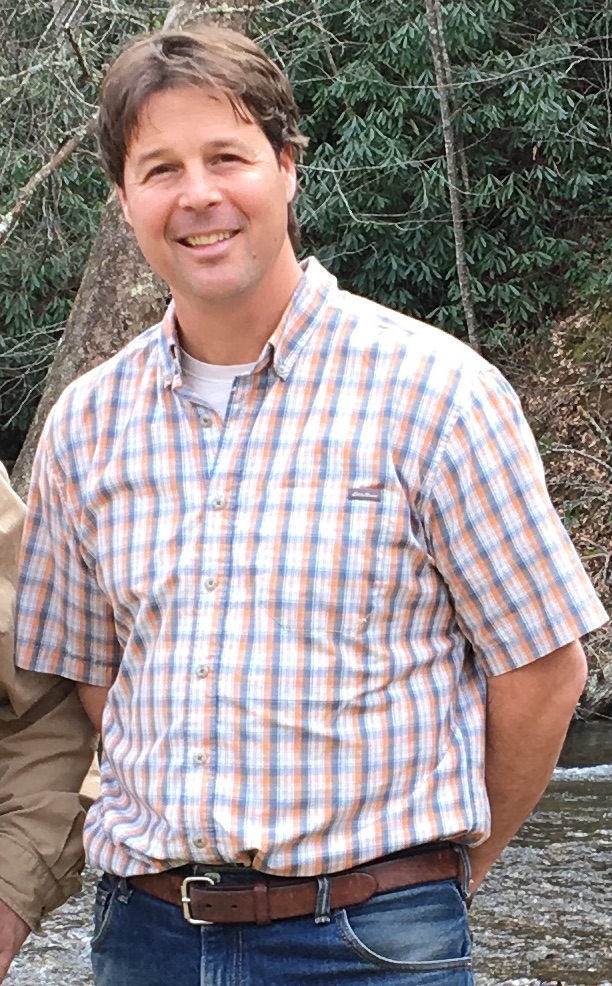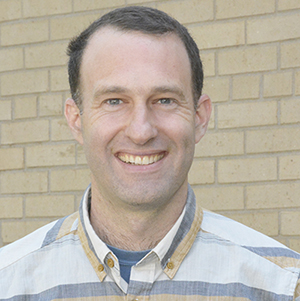Editor’s note: Voters in Buncombe County will be asked to choose up to two of the following candidates for two seats on the five member board of Buncombe County Soil and Water District Supervisors.
Alan Ditmore
Website: facebook.com/Elect-Alan-Ditmore-for-Buncombe-SWCD-1822097381207746
Occupation: Handyman/pet sitter/small engines
Previous candidacy or offices held: I stood (as they say in England) for this office five times and for Board of Education twice over the past 15 years.
Key endorsements: The website has 11 likes on it as of 9/17/18
Why are you seeking to be a Soil and Water Conservation District supervisor?
Mainly because I am extremely dissatisfied with all other candidates for all offices and feel I can easily do better, as could a bonobo. Transparency would improve if voting records were kept, enabling challengers like me to critique individual votes of SWCD incumbents as they do to incumbent county commissioners and congresscritters.
When people ask you, how do you explain the job of a conservation district supervisor?
The office is charged with administering voluntary cost-share funds for projects that prevent erosion and water pollution, such as fencing cows out of creeks; but like all offices, it also makes a handy bully pulpit.
What are the greatest threats to soil and water quality, and how would you address them?
Overpopulation is hundreds of times more threatening than any other threat. I would address it by funding contraception and abortions. Since the feds, state and county all fund contraception already, refusing to spend money and rolling it back into the general fund so that it could be reallocated to contraception may be the only way to do this, but that tiny percentage remains more cost-effective than Band-Aid, symptom-treating projects. Some public or contractor health insurance plans might even cover abortions with rolled-over funds. I’ve also seen a small “local fund” in the SWCD budget that might be spent with some autonomy.
William Hamilton
Incumbent
Website: facebook.com/william.hamilton.1654
Occupation: Previous candidacy or offices held: Buncombe County soil and water supervisor 2014
Key endorsements: Rep. John Ager, N.C. House 115 incumbent; Brownie Newman, chairman, Buncombe County Commission; Elise Israel, Buncombe County soil and water supervisor (incumbent); the Rev. Steve Runholt, Warren Wilson Presbyterian Church and College Chapel; Rob Elliot, Fairview resident, President Fairview Elementary School PTA, North Carolina registered forester
Why are you seeking re-election?
Most importantly, I believe wholeheartedly in the mission of the district. One of our basic tenets is that we have to grow food to feed ourselves, and we can do it in an environmentally sound manner. Districts were started by the U.S. Department of Agriculture to provide soil and water conservation technical assistance to farmers in the aftermath of the Dust Bowl and have been promoting sustainability longer than any other group in the United States. Sustainability and agriculture are central to my life.
When people ask you, how do you explain the job of a conservation district supervisor?
The job of a conservation district supervisor is to support the staff of the district. Our primary function is to meet once a month and receive, review and approve or disapprove applications for planning assistance under the provisions of public law. We also keep the supervisors of each district organized and informed of the activities and experience of all other districts and facilitate an interchange of advice and experience between districts and cooperation between them. We also have the important duty to work with the staff to promote the conservation assistance programs of the district to the community.
What are the greatest threats to soil and water quality, and how would you address them?
The greatest threat to soil and water quality in Buncombe County is nonpoint source stormwater runoff. There are two categories of this type of pollution, both caused by human activity: development and agriculture. Stormwater runoff from development is the primary threat to our soil and water. Stormwater runoff from agricultural operations also threatens soil and water, and it is in the agricultural arena that soil and water districts are especially well-equipped to make a positive impact. We offer technical assistance to farmers that includes stream exclusion, conservation tillage, no-till, filter strips, cover crops and crop rotation.
Elise Israel
Incumbent
Website: None
Occupation: Retired
Previous candidacy or offices held: Incumbent Soil and Water Conservation District supervisor
Key endorsements: None
Why are you seeking re-election?
I am seeking re-election in order to continue serving Buncombe County as a participant and decision maker in preserving our land and water resources. I am involved with educational workshops for landowners, environmental field days for grade school students and various FFA and Envirothon competitions, for middle and high school students. With my B.S. degree in forestry recreation and having taught in the Buncombe County public schools, I am able to utilize my background and experience in working with the Soil and Water Conservation District staff in reviewing conservation practice contracts, grant funding appropriation and additional requests for financial assistance.
When people ask you, how do you explain the job of a conservation district supervisor?
The responsibility of a supervisor is to oversee and approve technical and financial assistance contracts for practices that serve to protect and preserve our soil and water resources. I want to continue my services as a Soil and Water Conservation District supervisor in order to continue to play a role in the administration of this assistance.
What are the greatest threats to soil and water quality, and how would you address them?
Buncombe County encompasses a diverse landscape, from dense suburban areas to remote agricultural venues. The greatest threat to soil and water quality comes with the increasing population, the density of construction, erosion and, in more rural settings, animal waste. Offering technical assistance, financial assistance and legislative input both locally and statewide are ways to move toward a goal of preserving the county’s soil and water resources.
Karina Lizotte
Website: None
Occupation: Retail management
Previous candidacy or offices held: None
Key endorsements: None
Why are you seeking to be a Soil and Water Conservation District supervisor?
I am a candidate for Soil and Water Conservation District supervisor to gain the experience of participating in our political system, because I am an avid participant in cleanup efforts in our community, and because I believe that healthy soil and clean water need to be preserved and protected for future generations.
When people ask you, how do you explain the job of a conservation district supervisor?
I believe that Soil and Water Conservation District supervisors help to improve local water quality, advise local agricultural and recreational activities, and help conserve forest and wildlife areas.
What are the greatest threats to soil and water quality, and how would you address them?
I think that the greatest threats to our soil and water are the overuse of nonrenewable energy sources, chemical-reliant agriculture and waste that is not collected for recycling or landfill. I think there are many ideas that could be implemented in our area to stop and reverse climate change, including improved and more encompassing recycling options, food waste reduction, municipal composting and a commitment to end fossil-fuel use citywide.
Aaron Sarver
Website: aaronsarver.com
Occupation: Communications director, Campaign for Southern Equality
Previous candidacy or offices held: I’m a first-time candidate.
Key endorsements: Buncombe County Democratic Party; Jasmine Beach-Ferrara, Buncombe County commissioner; Quentin Miller, candidate for sheriff
Why are you seeking to be a Soil and Water Conservation District supervisor?
I’m running for Buncombe County soil and water supervisor to help protect farmland and open space. One of the Soil and Water Conservation District’s main functions is to work on farmland preservation projects and programs. I’ve spent many mornings helping harvest at Ten Mile Farm, formerly in Candler and now in McDowell County. And prior to that, worked for an organization that runs a farmer training alliance in Illinois. These experiences helped me to understand the value of conservation projects.
When people ask you, how do you explain the job of a conservation district supervisor?
Well, in most conversations I’ve had with voters it starts with what the position doesn’t do. The position doesn’t have control over water rates or the water system. The prime function of the job is preserving family farmland. We’re fortunate to have the Buncombe County Farmland Preservation Program in place. Farmers with more than 50 acres have an option to put their land into a preservation program known as a voluntary ag district. Supporting environmental education programs is a big part of it as well. Camp WILD is a great program that reaches middle and high school students.
What are the greatest threats to soil and water quality, and how would you address them?
The skyrocketing cost of land in Buncombe County is putting farmland at risk. The economic incentives to develop apartments or put a housing development on a piece of land are really a huge factor here. In rural parts of our state, real estate prices haven’t gone insane as they have here, so you don’t have that factor. The other element is we only have so much bottomland with a water source that can be farmed in Buncombe County. In the mountains you can’t farm a lot of acreage because it’s too steep; folks down in the Piedmont don’t have that issue.





Before you comment
The comments section is here to provide a platform for civil dialogue on the issues we face together as a local community. Xpress is committed to offering this platform for all voices, but when the tone of the discussion gets nasty or strays off topic, we believe many people choose not to participate. Xpress editors are determined to moderate comments to ensure a constructive interchange is maintained. All comments judged not to be in keeping with the spirit of civil discourse will be removed and repeat violators will be banned. See here for our terms of service. Thank you for being part of this effort to promote respectful discussion.